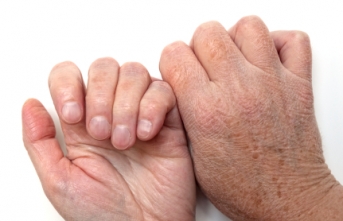 |
| Skin can be beautiful at any age. |
As we age, skin becomes thinner and less elastic, becoming more prone to injury and reducing its ability to heal. By understanding the reasons behind these changes in aging skin, we can address the effects of poor health and take extra steps to combat its effects.
Aging Process
As a body ages, skin can become rough and dry, and loss of elastin causes it to become slack. Thinning of the epidermis, or surface layer of the skin, can give skin a transparent look, while a flattening of areas below this layer causes skin to become fragile. Skin can bruise, tear and take longer to heal. Loss of fat below the skin causes a skeletal or puckered appearance.
Health Conditions
There are certain illnesses common among the elderly that can contribute to skin problems. Congestive heart failure can affect the skin’s ability to heal, as the heart can’t expel sufficient blood to keep pace with the body’s metabolic demands. Other conditions that can have a negative effect on the skin are diabetes, incontinence, eczema and psoriasis.
Nutrition & Supplementation
If you are a caregiver, its critical to make sure your loved one eats a healthy diet and takes supplements where needed. Consult with a dietitian, who will work with you to improve health through nutrition — the foundation of healthy skin. For those who don’t get enough nutrition through food alone — common among the elderly, who may have trouble eating — supplements are available in puddings, powders and juices, for easy swallowing and digestion.
Skin Care
Skin care is critically important. Damaged skin can lead to infection, which can be serious among the elderly. Be sure to use professional-grade skin care products formulated especially for fragile skin, especially if your loved one is managing incontinence.
Remember to cleanse and protect skin daily, especially if skin has been exposed to urine or stool. Look for a gentle foam cleanser formulated to remove residue. After skin has been cleaned and patted dry with a clean towel, use a skin protectant to keep skin healthy and moisturized. Look for lanolin-based products that also contain medicinal ingredients that protect and soothe.
When to See a Doctor
If you notice signs of a yeast infection, severe irritation, infection, or rash or redness that won’t go away, consult your health care provider. If your loved one is diabetic or recently has undergone surgery or radiation treatment, special care may be needed to keep skin healthy.
For more information check this link: http://blog.caregiverpartnership.com/2011/03/help-for-elderly-skin.html














0 comments:
Post a Comment